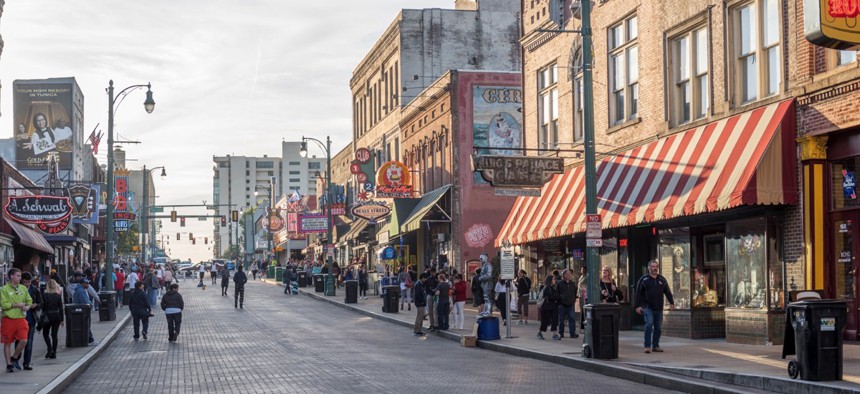Four Cities Chosen for $40 Million Investment in Public Spaces

Memphis, Tennessee.

Connecting state and local government leaders
Akron, Chicago, Detroit and Memphis join Philadelphia in an effort to tackle economic segregation by revitalizing civic commons.
Can investment in parks, libraries and recreation centers help reverse the worrisome trend of economic and social segregation in cities?
Four national foundations are betting big on that theory.
Starting today The JPB Foundation, Knight Foundation, The Kresge Foundation and The Rockefeller Foundation are coming together to invest a total of $20 million in public spaces in four cities. That money will be combined with $20 million in matched funding from local sources, resulting in a $40 million dollar investment in the Reimagining the Civic Commons initiative.
The four cities—Akron, Chicago, Detroit and Memphis—join Philadelphia, which was chosen as a pilot city for the program in 2015 in a bid to show how prioritizing the revitalization of public spaces can address urban issues like economic inequality and social fragmentation.
In Philadelphia, the initial $11 million the city received as part of the project was pivotal in helping to spark an unprecedented $300 million investment in the city’s civic assets.
“We see this as a series of local experiments to interpret a common theme: what is the purpose of community spaces like parks, libraries, municipal buildings or even sidewalks? What binds us to place and to each other?” said Alberto Ibargüen, Knight Foundation president, in the announcement.
The $40 million investment in these spaces in the four test cities serves as a concerted attempt to bridge the increasingly wide gap between rich and poor neighborhoods.
“The gulf separating high-income and low-income neighborhoods in some of the country’s largest cities is wide—and in recent years, it has grown even wider,” said Judith Rodin, the president of the Rockefeller Foundation, in a statement.
“This is not a new problem, but rather one that is critical to address now before it becomes insurmountable.”
Quinn Libson writes for Government Executive’s Route Fifty.

NEXT STORY: As School Starts, More States Focus on Native American Students





